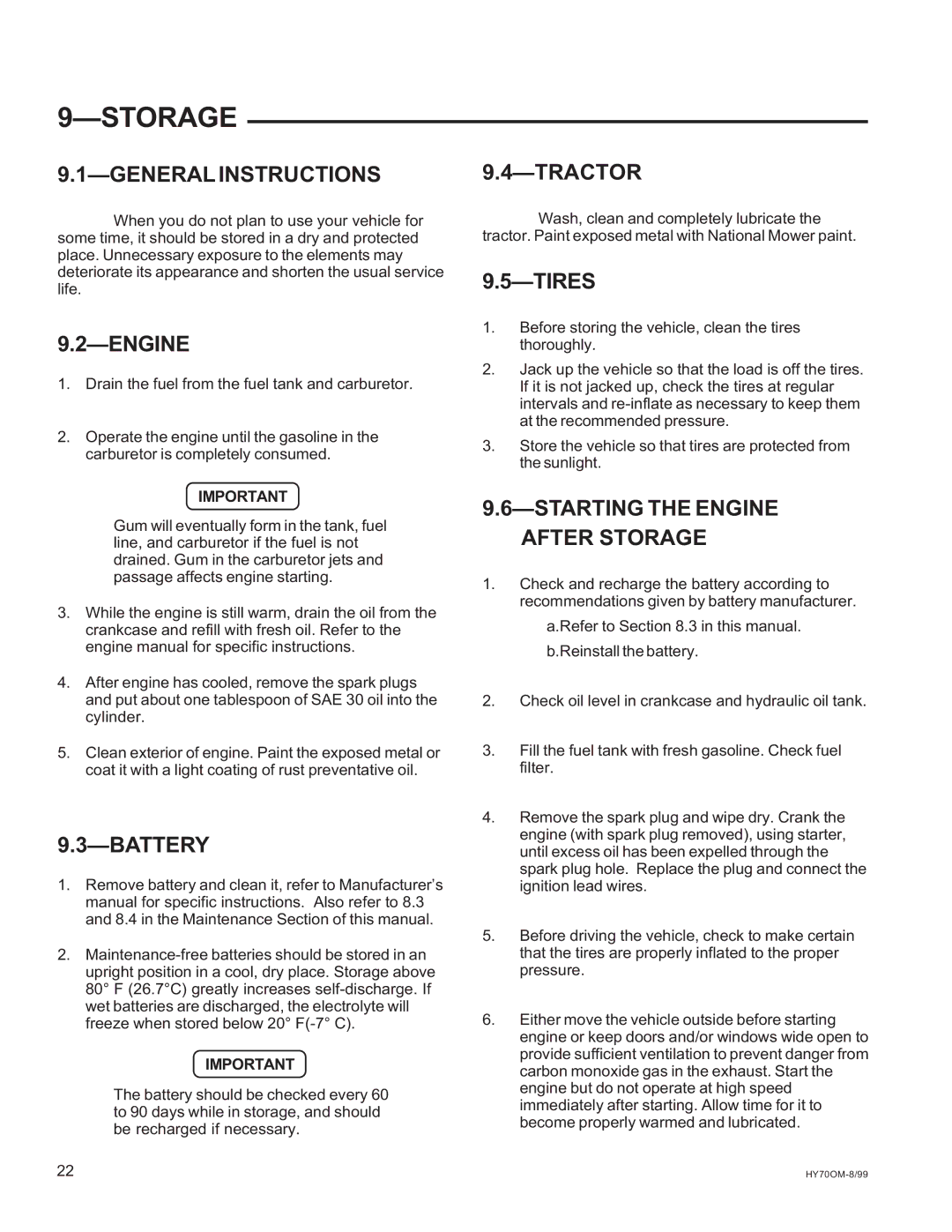
9—STORAGE
9.1—GENERAL INSTRUCTIONS
When you do not plan to use your vehicle for some time, it should be stored in a dry and protected place. Unnecessary exposure to the elements may deteriorate its appearance and shorten the usual service life.
9.2—ENGINE
1.Drain the fuel from the fuel tank and carburetor.
2.Operate the engine until the gasoline in the carburetor is completely consumed.
IMPORTANT
Gum will eventually form in the tank, fuel line, and carburetor if the fuel is not drained. Gum in the carburetor jets and passage affects engine starting.
3.While the engine is still warm, drain the oil from the crankcase and refill with fresh oil. Refer to the engine manual for specific instructions.
4.After engine has cooled, remove the spark plugs and put about one tablespoon of SAE 30 oil into the cylinder.
5.Clean exterior of engine. Paint the exposed metal or coat it with a light coating of rust preventative oil.
9.3—BATTERY
1.Remove battery and clean it, refer to Manufacturer’s manual for specific instructions. Also refer to 8.3 and 8.4 in the Maintenance Section of this manual.
2.
IMPORTANT
The battery should be checked every 60 to 90 days while in storage, and should be recharged if necessary.
9.4—TRACTOR
Wash, clean and completely lubricate the tractor. Paint exposed metal with National Mower paint.
9.5—TIRES
1.Before storing the vehicle, clean the tires thoroughly.
2.Jack up the vehicle so that the load is off the tires. If it is not jacked up, check the tires at regular intervals and
3.Store the vehicle so that tires are protected from the sunlight.
9.6—STARTING THE ENGINE AFTER STORAGE
1.Check and recharge the battery according to recommendations given by battery manufacturer.
a.Refer to Section 8.3 in this manual. b.Reinstall the battery.
2.Check oil level in crankcase and hydraulic oil tank.
3.Fill the fuel tank with fresh gasoline. Check fuel filter.
4.Remove the spark plug and wipe dry. Crank the engine (with spark plug removed), using starter, until excess oil has been expelled through the spark plug hole. Replace the plug and connect the ignition lead wires.
5.Before driving the vehicle, check to make certain that the tires are properly inflated to the proper pressure.
6.Either move the vehicle outside before starting engine or keep doors and/or windows wide open to provide sufficient ventilation to prevent danger from carbon monoxide gas in the exhaust. Start the engine but do not operate at high speed immediately after starting. Allow time for it to become properly warmed and lubricated.
22 |
